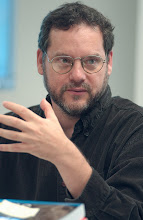The Power of Activist Study Groups
As the director of an intensive, two-year, activist training program, I start from the assumption that activist learning, education, and training improves the chances of our social movements actually winning victories. This assumption has been well documented by researchers like Griff Foley and Michael Newman, but for me this core conviction grows mostly out of my own experience.
In the early 1970s, I helped organize an activist study circle designed by a popular education group called the Philadelphia Macro-Analysis Collective. My particular “macro” group involved close to two-dozen local activists in Minneapolis and St. Paul. Our aim was to help each other see beyond our different single issues, the next demonstration, or even the next hot button issue to come along. We intuitively sensed that we needed to go beyond our urgent, but largely unreflective activism. We decided to study together for half a year to develop a more dynamic and holistic analysis, vision, and strategy to guide our work as social change organizers. It was one of my most powerful learning experiences as an activist.
Each week, about twenty of us would settle in for two hours of reports and discussions based on our readings and experiences. The learning process was participatory and lively. Topics included the global environmental crisis, ecological limits to growth, North-South relations, U.S. history, militarism, political economy, social oppression, strategic nonviolent action, and other grassroots strategies for change. The result of these searching dialogues, which we always related to the concrete challenges in our own activist work, was not a group adherence to any single political line, but a dramatic deepening in our understandings of the world, the constraints and opportunities we each faced, and the programmatic and strategic options that might help us realize our goals.
Happily, over thirty years later, a group of popular educators spearheaded by Randy Schutt of the Vernal Education Project, and involving some of the folks who started the Philadelphia Macro-Analysis Collective, is now working to update and revise the old 24-week “macro-analysis” seminar, and they are even developing information on how to adapt the new format to shorter, democratically-run, political education classes within colleges and universities.
The creaters of the new seminar format, now called START seminars (Study, Think, Act, and Reflect Together), still have a way to go to put the new manual and reading list together, but this is a project to keep an eye on and should be a great tool for political education in the coming years. Randy's group is also looking for people to help search out the best online readings for each topic to be covered and to suggest additional action-learning exercises for START study groups.
For more information, visit the Vernal Project’s draft START webpage, or write Randy Schutt. People should also check out Randy’s important book on activist training called Inciting Democracy. It was very helpful to me when I was designing the basic curriculum of the Environmental Advocacy and Organizing Program.
For other study group resources, check out the Granite Earth Institute, which facilitates study circles in New Hampshire focused on five different areas: voluntary simplicity, sustainable living, deep ecology, bioregionalism, and corporate globalization. The Institute is chaired by recent EAOP graduate Steve Kowal and each of their study groups utilize workbooks distributed by the Northwest Earth Institute.


0 Comments:
Post a Comment
<< Home